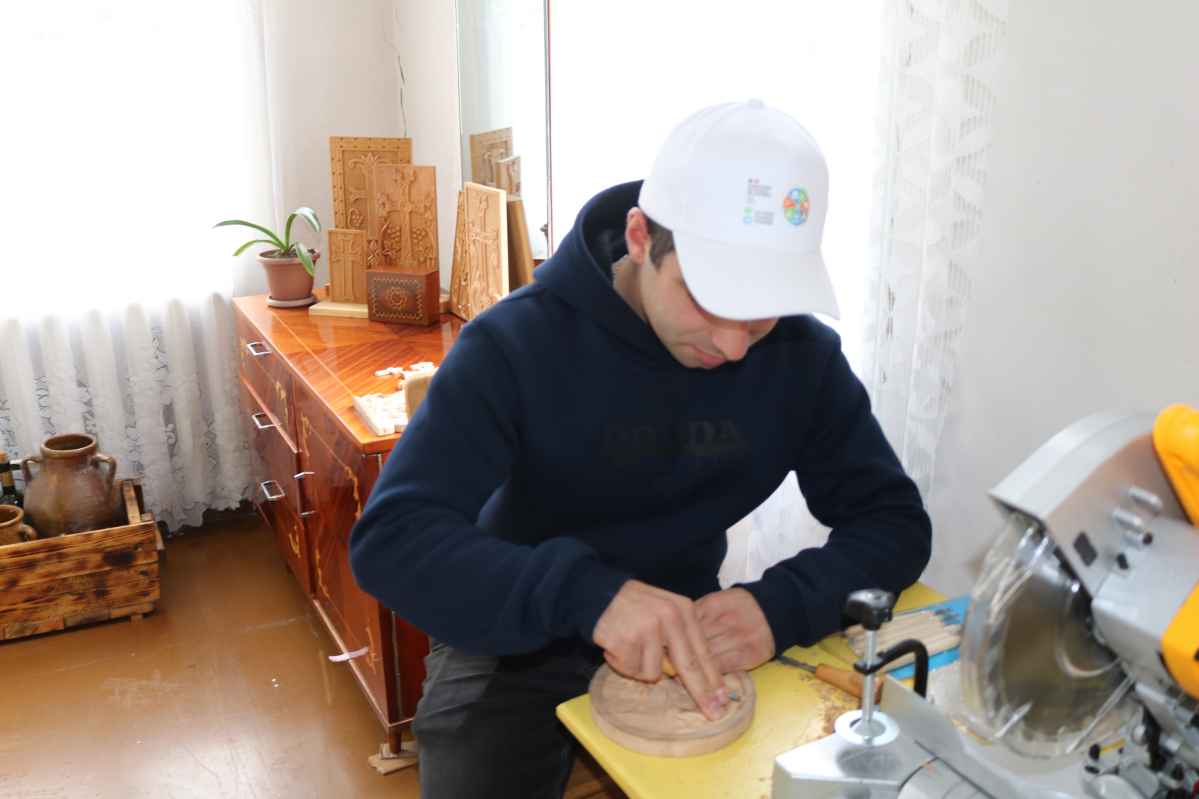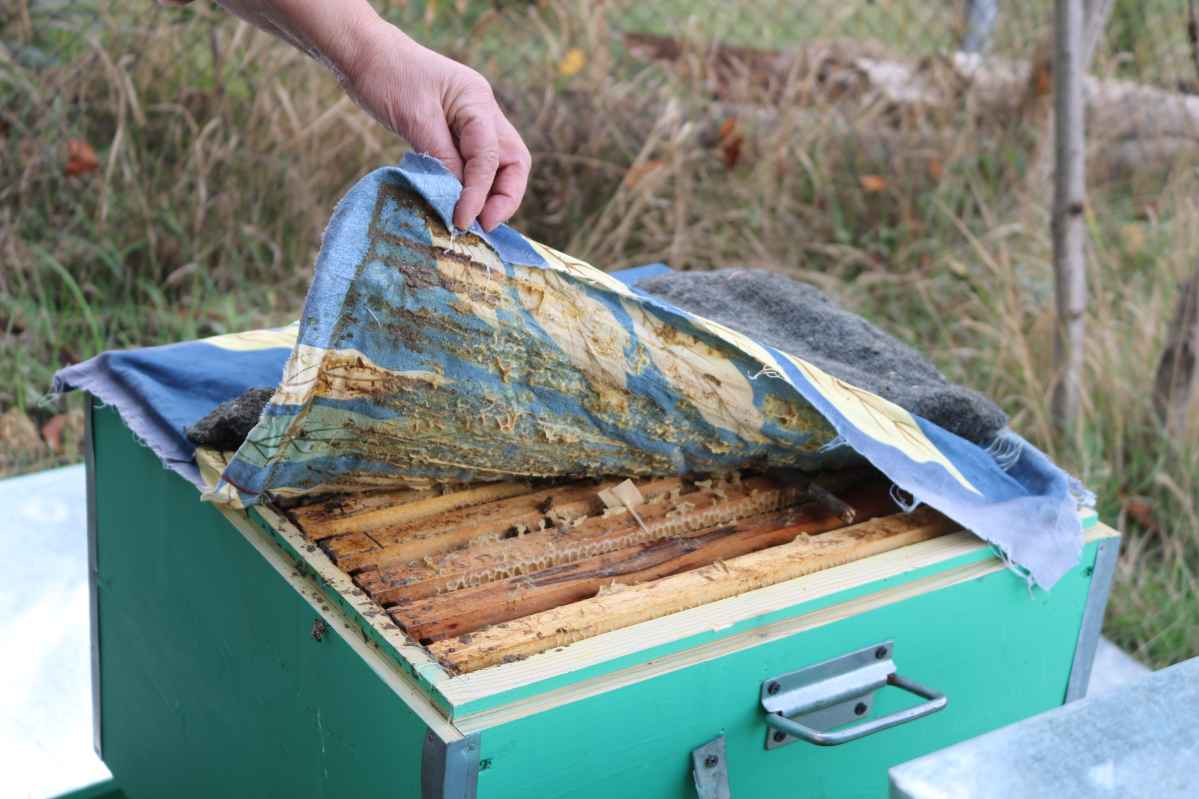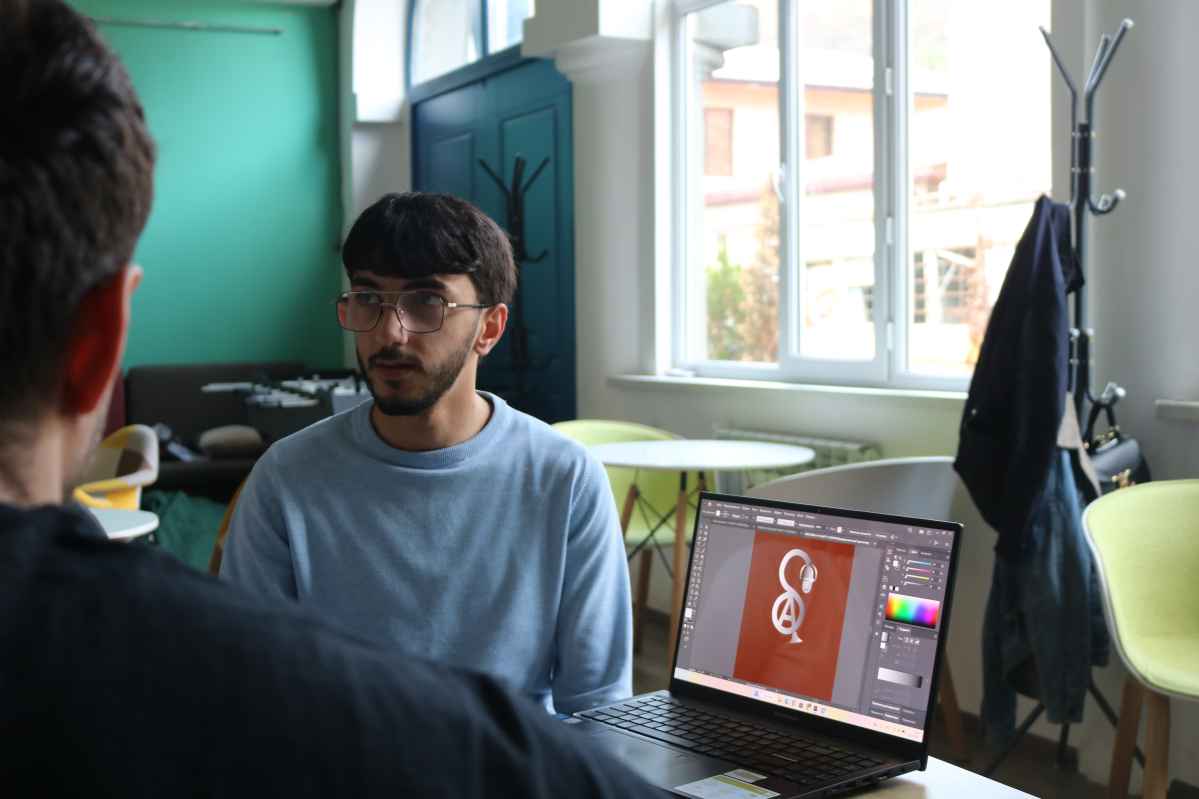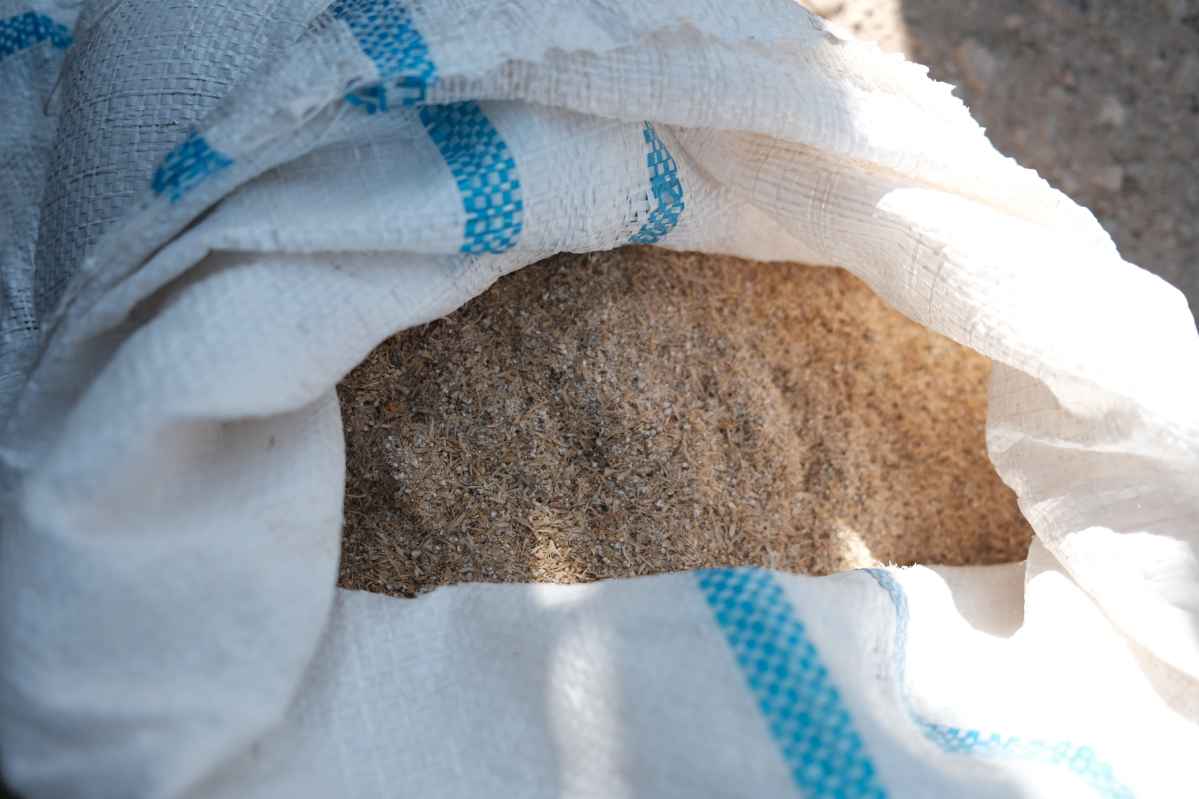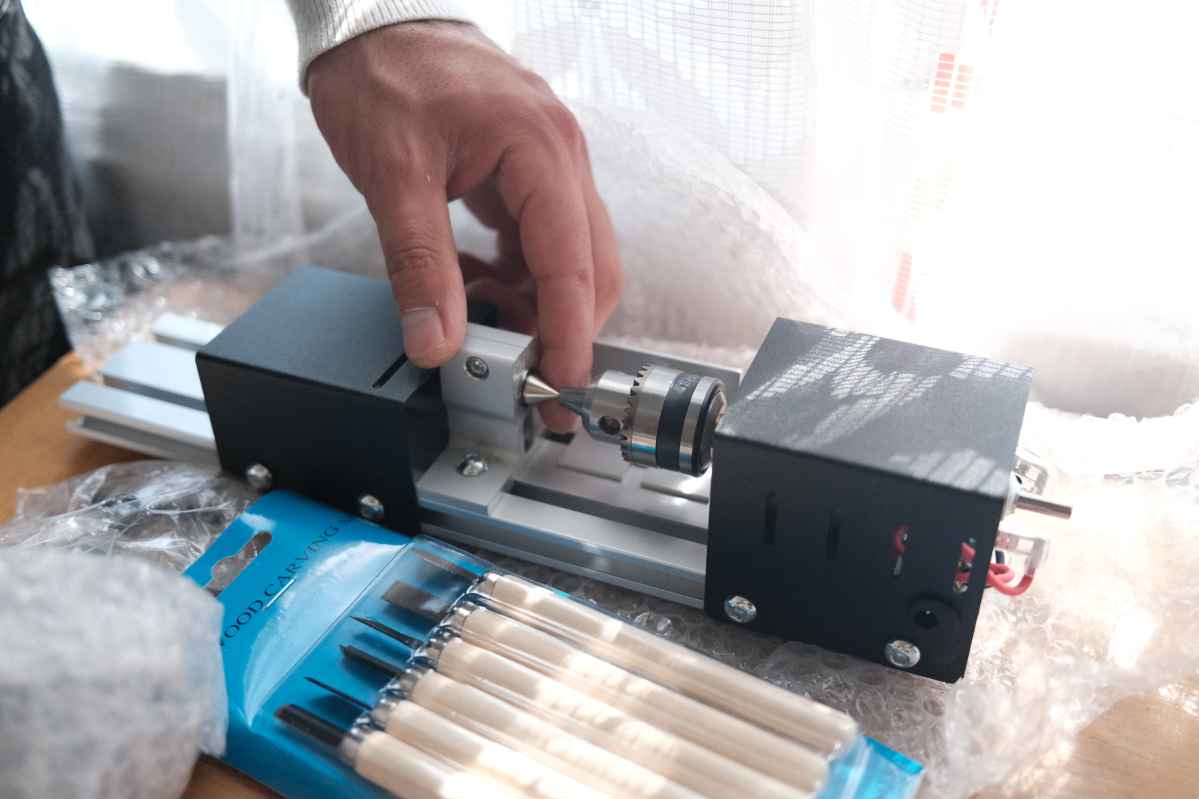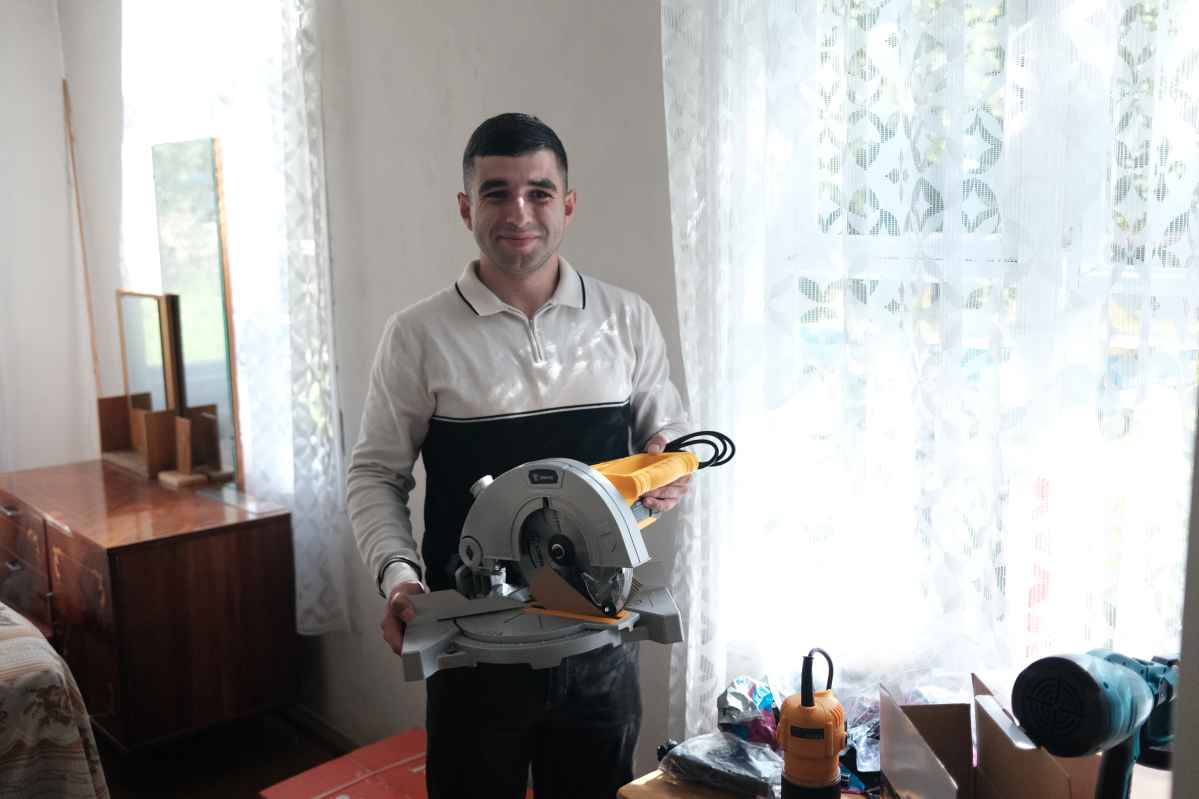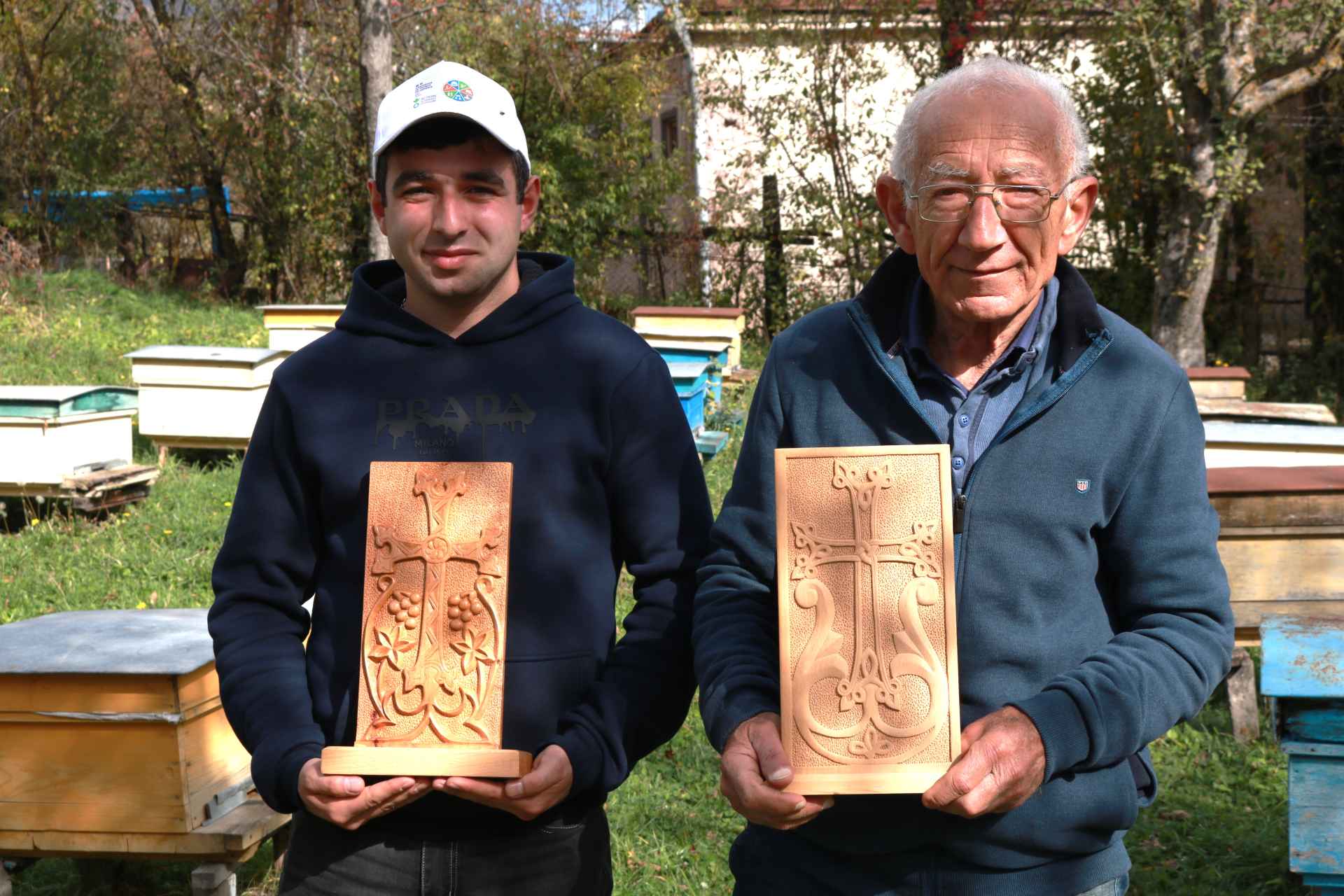

Empowering Change: Stories from the Action Against Hunger Shuttle Program in Tavush
In Tavush province, Armenia, Action Against Hunger’s Shuttle Program has helped refugee families and members of the host community to build their competences and support their livelihoods. Among them are Elen, Alvard, Davit, and Martin - four participants whose determination turned opportunity into change.
In September 2023 during the conflict with Azerbaijan, Elen fled from Nagorno-Karabakh with her husband, three children, and her mother-in-law and resettled in Ijevan in Tavush province. In Nagorno-Karabakh, she had been working in small scale agriculture, including livestock farming. Inspired by online videos, Elen’s husband decided to build a chicken incubator himself — learning each step from YouTube tutorials. When the war broke out, they were forced to flee but took with them the most essential parts of the incubator so that Elen could restart her business. Since Ijevan is well known for its pig farms, she decided to also open her own small farm, where she now raises one sow and nine piglets.
She heard about Action Against Hunger’s Shuttle program though Facebook and saw it as a great opportunity to learn more about business management. Through her attendance in the Shuttle, Elen learned about financial management, how to plan her production to maximize profits, and strategies to reach new customers. Thanks to her outstanding business idea, she received the toolkit grant, which she used to purchase a mill for producing animal feed. “The new machinery has completely changed the way I work,” Elen says. “Before, I had to buy feed from others — now I can produce it myself. It also means I can focus more on the pigs’ health, knowing exactly what they’re being fed.”
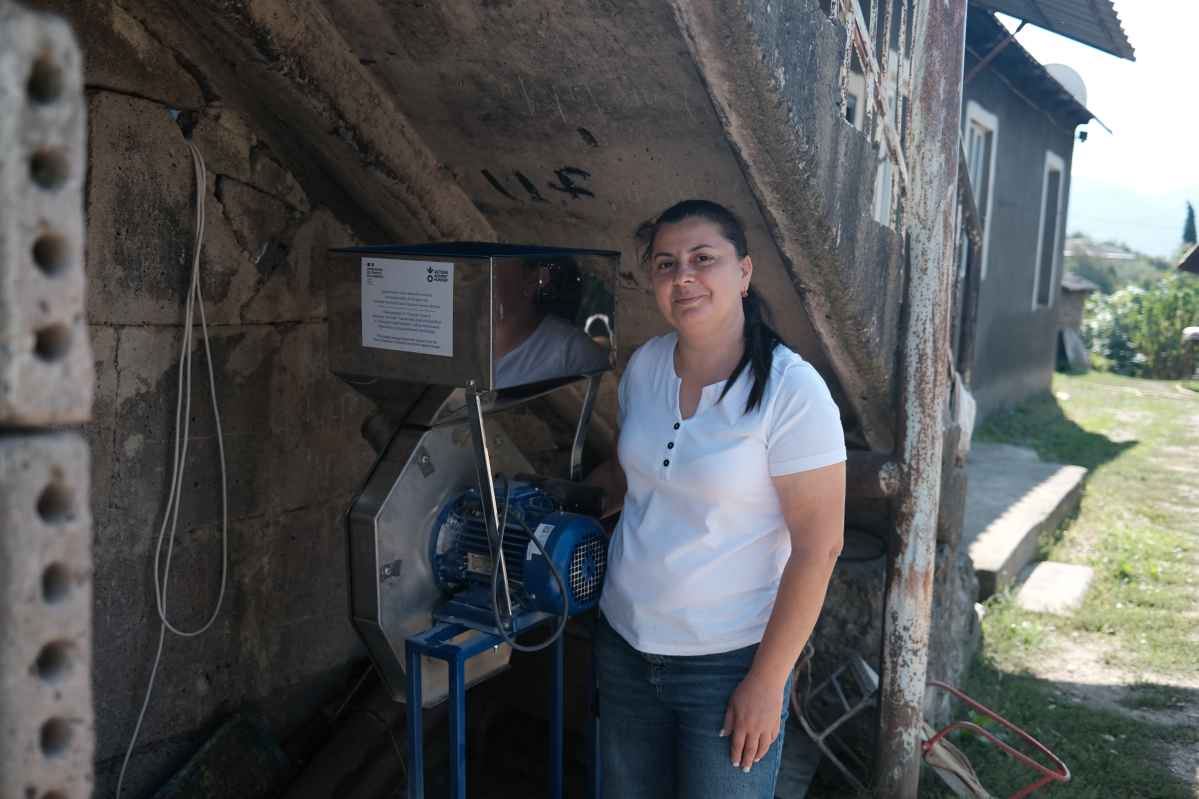
Elen was supported with this initiative through the project “Supporting the socio-economic inclusion and employability of refugees and the most vulnerable social groups in Tavush, Armenia” implemented in Dilijan and Ijevan (Tavush province) by Action Against Hunger with funding provided by the French Embassy in Armenia. The project, that concluded at the end of September, aimed to develop the participants’ professional and personal skills through the agency’s social and economic inclusion approach the “Employment and Entrepreneurship Shuttle”. The ‘Shuttle’ brought together 25 motivated, unemployed individuals in both Ijevan and Dilijan to engage in group and individual sessions over a 5-month period.
Guided by a professional coach, participants strengthened their skills, knowledge, and professional competencies while building networks that enhance their chances of employment or entrepreneurship. Additionally, 17 participants who had shown an interest in self-employment were awarded a business toolkit of a value of 600 Euros, of which Elen was one.
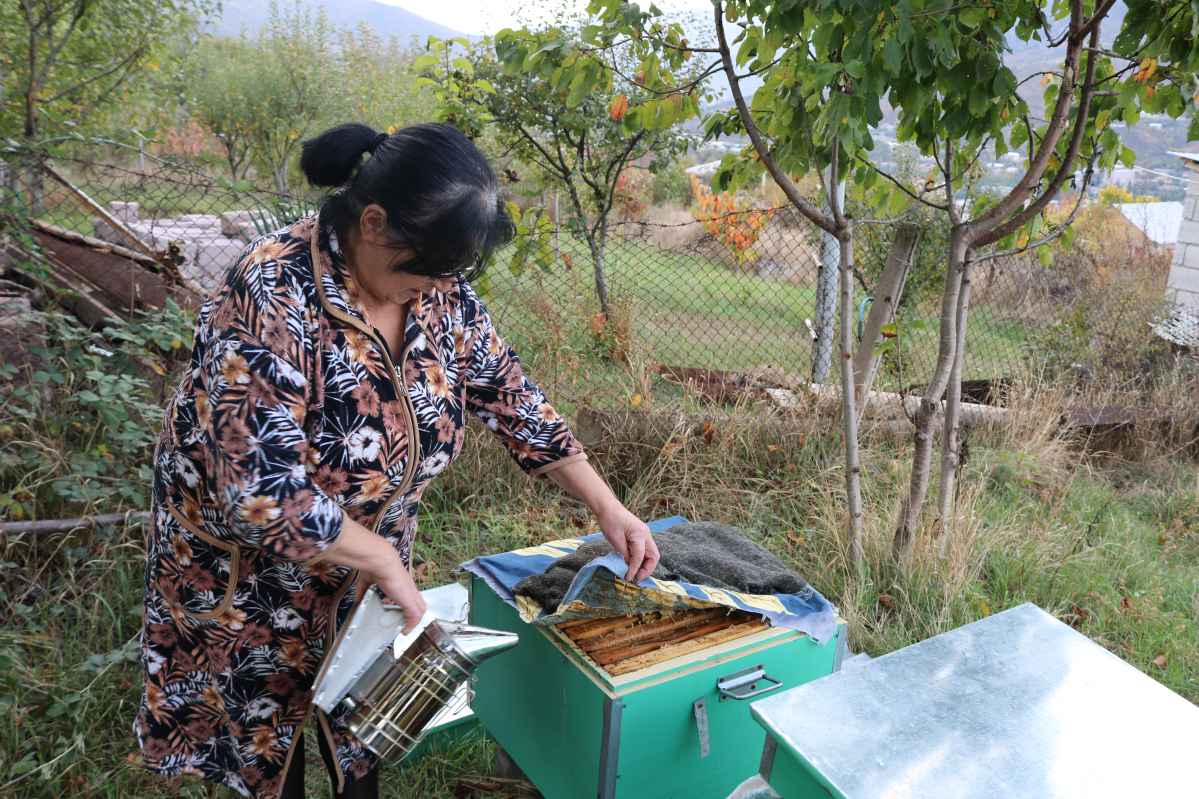
Alvard is another Shuttle participant from Nagorno-Karabakh that has shown great determination in setting up a small business. She too fled from Nagorno-Karabakh in September 2023 with her two children and heard about the Shuttle program through Facebook. Despite being a teacher, Alvard has always worked in beekeeping. “I started helping my father with the bees when I was very young,” Alvard recalls. “Over time, I got more and more involved — until I was taking care of over 50 beehives myself.” Unfortunately, she lost everything when the war broke out and moved to Ijevan. In Armenia, Alvard kept working as a teacher but with the idea of buying new beehives one day. Her opportunity arose with the French Embassy-funded project when Alvard applied to join the Shuttle. Alvard’s participation was challenging but also enriching: “I was the oldest person in the group, but I truly enjoyed working with the younger participants. From them, I learned to listen actively and to look ahead with optimism — but most importantly, they reminded me to keep hope alive for returning to Nagorno-Karabakh one day.”
At the end of the program, she applied for the toolkit grant that was accepted. Her first reaction was to call all the winners to congratulate them. With the grant received, Alvard bought six beehives and manages them with her son despite her multiple commitments. Every morning, she takes a one-hour taxi drive to the village where she teaches Armenian. After, she goes her son’s house to work with the bees. On top of that, she is currently taking part to a capacity-building training on beekeeping techniques.
Alvard is not discouraged by the amount of work but believes that the reason for her success lies precisely in her proactivity and optimism. When asked about her plans, Alvard is very clear: “I want to rebreed the bees to produce more honey.” Before the war, she was exporting more than 60 litres of honey mainly to Moscow. However, her current production is only 3 litres. As she tells me this, her phone suddenly rings and in a twist of fate, or perhaps a reward for her perseverance, she receives unexpected news – a new project that she has applied for has been approved, and she will soon receive ten more beehives to continue to build her business.
The Action Against Hunger project not only addressed the needs of refugees from Nagorno-Karabakh but also supported the local population from Tavush. When I met Davit, 20, just three days before the launch of the Tavush Type Project, his excitement was contagious. The initiative blends social impact with entrepreneurship: with a team of nine, Davit is set to train young people in graphic design while offering creative services to local businesses. Equipped with the only high-quality printer in Ijevan, he is also bringing professional printing within reach for the first time.
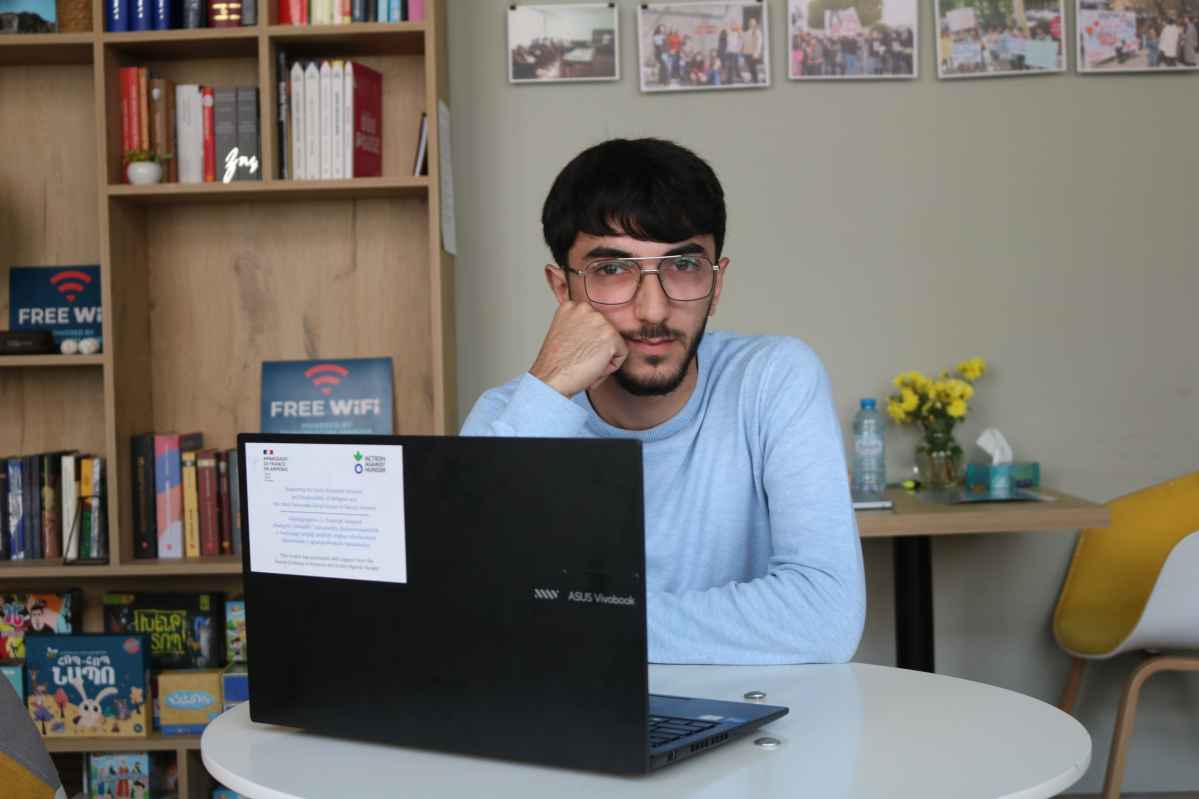
Davit has been interested in graphic design since he was very young. Enrolled in an art school, he specialised in music and painting. “Switching from hand painting to digital painting was not easy” Davit told me, “My pen helped me to connect with the paper”. Despite this, Davit never stopped persisting and now he is about to start the Tavush Type Project. I asked how he ended up working on this idea. When he started studying graphic design as a self-learner, he explained, his family did not like the idea. However, thanks to his perseverance and self-confidence, Davit never stopped learning and started producing small works for his friends with his old laptop. The first design? A logo for his musician friend that he proudly showed us during the interview.
He tried to apply for a grant earlier, but unfortunately, his application was not accepted. However, he didn’t give up and decided to apply for the Action Against Hunger Shuttle, to increase his skills. “The Shuttle helped me to enhance my business knowledge and planning, to work in a team, and to present my project to an important audience”, he says. His business idea was so innovative that he was accepted to receive a toolkit grant, which allowed him to purchase a new laptop. This gives Davit the opportunity to enhance the quality of his designs and work with more advanced digital tools. At the project’s closing event, Davit had the opportunity to share his experience of the Shuttle and showcase his initiative with the French Ambassador, Olivier Decottignies. As he explained “Before joining the Shuttle I had no idea how my future looked like. Now, with a team of nine people, I plan to provide trainings to my community”."
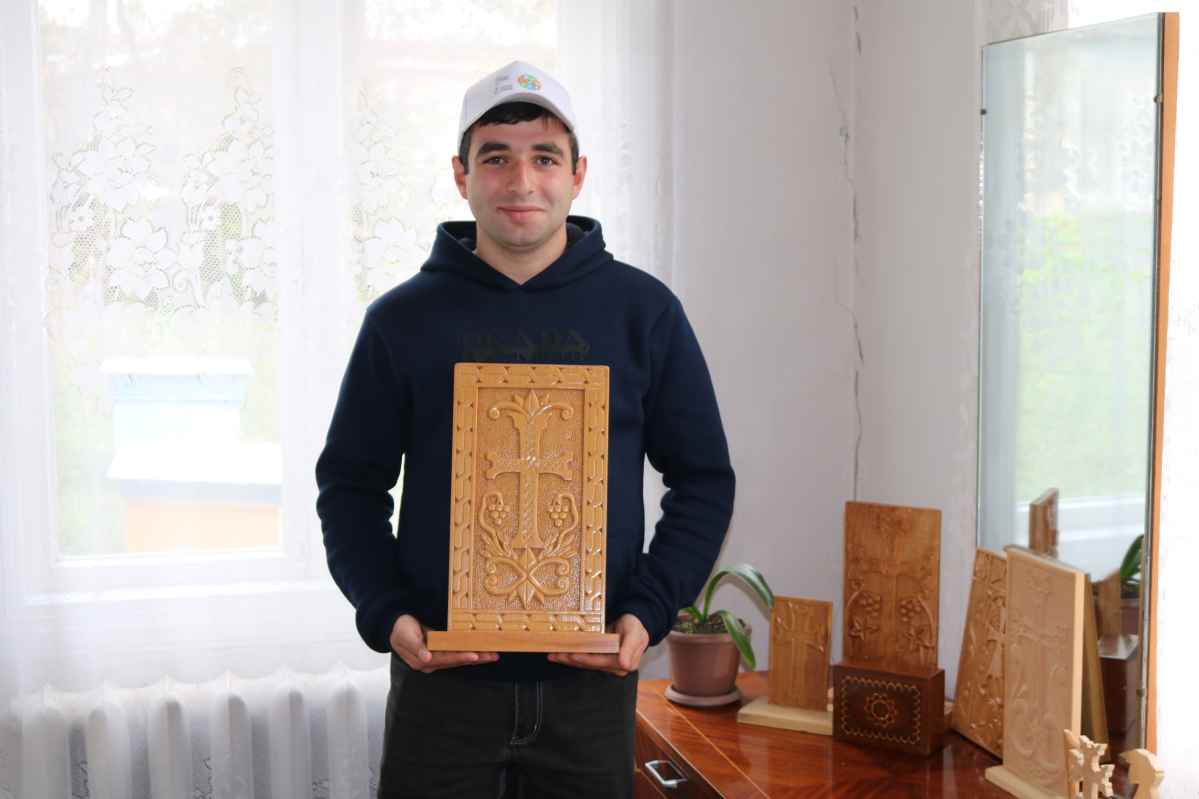
Another participant from the region whose story stood out is that of Martin. At 25, he carries a quiet strength that becomes immediately apparent in conversation. He is quiet and softly spoken, but he lights up the moment he mentions his craft. He learned woodworking from his grandfathers, both skilled carpenters. With the support of a foundation, and after attending a masterclass, Martin began selling his handmade items to tourists and even teaching children the art of carpentry. Yet, his production remained limited: the hand tools that he owned made every step a slow and laborious process.
For Martin, the Shuttle program, and the grant he received at the end of it, represented more than just financial support; they gave him a chance to grow, to modernize his workshop, and an opportunity to transform his passion into a sustainable livelihood. Indeed, Martin’s main source of income is his job as a receptionist in a hotel in Dilijan. On top of that, he works a few hours per day on wood pieces that he sells in a small shop located in the town. “I see myself growing the business by selling my products online,” Martin shared, “and at the same time, I want to open a workshop in Dilijan where children can learn woodworking.” The training sessions provided by the Shuttle helped him to think more strategically, but the real improvement came from receiving the grant. “When I applied, I didn’t believe I had any chance to win. But when I got informed about my selection, I was very happy, and I immediately started thinking about the future.” Martin’s words perfectly illustrate how the Shuttle program helps participants build self-confidence and develop a forward-looking mindset.
The shift from mechanical to electronic equipment has marked a turning point in his craft. What once took hours of manual effort can now be done in a fraction of the time, freeing Martin to focus more on creativity and design rather than just the labour. However, learning how to use the tools took him several hours of YouTube videos and the help of his grandfather, who approached us at the end of the interview. With a proud smile, he told us how happy he was to see the family tradition carried on by his grandson. He added that once Martin masters the new electronic equipment, he plans to teach him how to operate his own industrial tools, passing on yet another layer of the family’s craft.
